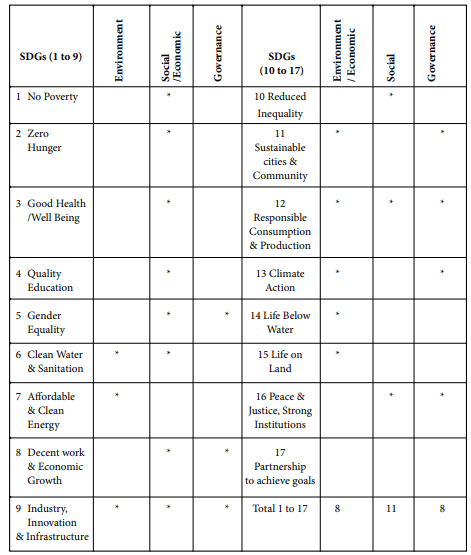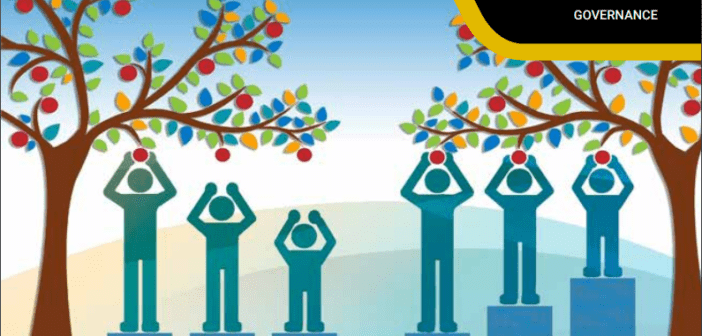By A. Sekar and Dr. Ranjith Krishnan
Sustainable development refers to a mode of human development in which resource use aims to meet
human needs while preserving the environment so that these needs can be met not only in the present, but also for the generations to come.” Dr. A P J Abdul Kalam, Former President of India
Concerns of Sustainability
It is well recognized that the way the global economy has conducted itself in the last almost six decades, particularly under the influence of the dominant developed nations, have contributed to the global sustainability concerns of today with respect to three major components namely Economic Viability, Social Equity and Environmental Protection.
While there have been bits and pieces of knee jerk reactions from time to time, there has been lack of a comprehensive global perspective to tackle the problems facing the planet. Whatever steps were taken
have been perceived to be often limited to serving the priorities and interests of the developed nations comprised in the Global North without properly factoring the concerns of the Global South.
Source: https://www.futurelearn.com/info/ courses/sustainability-society-and-you/0/ steps/4618
The imbalances with respect to Sustainability at the global level can be perceived to have two broad dimensions namely,
a) Dominance of Economic Viability over Social and Environmental concerns: Unbalanced weightage being given to Economic Viability at the cost of Social Equity as well as disregard to environmental concerns. This scenario is applicable to all nations – developed or developing – in the sense that there has been a tendency to prioritise economic considerations disregarding social and / or environmental considerations.
b) Economic and social Inequalities: The problem of economic inequalities with respect to income and wealth is also multi-fold in the sense that it is seen to be existing globally as well as at country level and at the regional levels within the smallest geographical classification. This is found to be happening due to actions by the elected representatives serving their own vested interests disregarding the weaker sections of the society thus leading to economic and social inequalities.
The scenario has led to significant imbalances in the form of economic and social inequalities in the
world at large but the bulk of the brunt is being borne by the nations in the Global South. UN Mandated Sustainable Development Goals (SDGs) The UN mandated efforts to end poverty date back to 2000 in the form of Millennium Development Goals (MDGs) saw some progress but they were uneven.
The first concrete global commitment in the form of 193 member nations joining together in September 2015 and agreeing to 17 specific targets in the form of Sustainable Development Goals (SDGs) with respect to various economic, social, environmental and governance parameters to be achieved by 2030 marked a major comprehensive initiative. The following table summarises the SDGs: –

The commitments are highly ambitious considering the resource requirements for achieving the SDGs at country level and at the global levels. It calls for concrete action plan with measurable targets broken down period-wise as well as at the country level, without which the efforts that would be taken are bound to be lacking in direction and focus.
It is however heartening that there is significant interest among the emerging and developing nations in working towards SDGs as can be seen from the initiatives taken by them. Examples of India and Kenya are worth mentioning here.
India has recognized the importance of its commitment to SDGs. NITI Aayog1 which is the principal think tank of the Indian Government takes up the various steps including coordinating the SDGs, mapping schemes related to the SDGs and their targets, identifying the ministries that would be taking the lead with respect to each target. It will also be helped by the Ministry of Statistics and Programme Implementation (MoSPI).
The initiatives also recognise the role of the State Governments in ensuring inclusion of all sections of the society. Under the leadership of the present Indian PM, the government is committed to “Sabka Saath
Sabka Vikas” meaning “Development with all and for all” highlighting the importance of development focussing on inclusive growth and social equity thus leading the way for Sustainability. The blueprint for Kenya’s road map is the “Kenya Vision 2030” which aims to create “a globally competitive and prosperous
country with a high quality of life by 2030”.
In Kenya, the Ministry of Devolution and Planning co-ordinates the implementation and monitoring of the various activities and schemes related to SDGs. The devolved system of government put in place by the
Kenyan Constitution 2010 establishing 47 counties will be a catalyst in Kenya’s efforts in marching towards achievement of SDG targets in an inclusive manner. The spirit of countries like India and Kenya should be motivating not only the developing nations but also the developed nations to look inward and resolve internal inequalities as the world travels to achieve balanced all-round Sustainability.
It is hoped that the responsibility for travelling the path towards attainment of the SDG’s is not only with the governments. It is also the duty that of all the stakeholders in every country. There is a need for the large business organisations and fund houses that are sitting on surplus funds to release them so that the same could be channelised towards SDGs such that it is ensured that all stakeholders collectively benefit in a balanced and inclusive manner.
We have witnessed a slowdown in the efforts towards SDGs because of COVID-19 and now that it is behind us, renewed efforts to speed up the action plan needs to be taken. The recent Ukraine crisis has also contributed to further diversion away from the focus on SDGs.
Democratic Governance for achieving Sustainability
In the words of UN Secretary-General Ban Ki-moon in a message dated September 7, 2016 for the International Day of Democracy on September 15, 2016 “Democratic principles run through the Agenda like a golden thread, from universal access to public goods, health care and education as well as safe places to live and decent work opportunities for all. Goal 16 (SDG 16) addresses democracy directly: it calls for inclusive societies and accountable institutions.”
Even granting that there will be renewed efforts towards SDGs, unless there is democratic governance not only at the individual country level but also at the global level, achieving the SDGs in a time bound manner will only remain a pipe dream. It should be remembered that while achieving SDGs are non-negotiable goals, authoritarian approaches towards SDGs without consensus may work only in the short run and cause long term damage to Sustainability. There is a pressing need for concrete efforts to strengthen the forces of democracy and the governance framework.
Better late than never, but not unreasonably late, as we are running out of time when it comes to Sustainability of the Planet. Under this background it would be worthwhile to highlight some of the
underlying principles of democracy which are crucial in the implementation of democratic governance for achievement of SDGs: –
• Empowering public participation including compulsory representation of minorities and weaker sections of the society.
• Conceiving and enhancing good governance practices at the local level.
• Respect for Rule of Law and Supremacy of Law.
• Enhance capacity of Governments at all levels to focus on public welfare.
• Promote transparency in the functioning of the government, political institutions, and Public Administration at all levels.
• Establish and seek accountability of government and Institutions for achieving SDGs.
• Promote autonomy of government and public institutions and provide for checks and balances that strongly discourage political interference.
• Implement gender equality in all spheres of politics, society, and economy.
• Have built-in mechanism to detect corruption in politics and public administration and punish corrupt
practices with zero tolerance.
• Establish framework to hold regular and free elections including therein a framework that discourages candidates with criminal records from contesting elections or holding public offices.
• Checks and Balances for control of abuse of power.
• Checks and Balances for abuse of human rights backed by a strong legislative framework respecting
human rights.
• Factor and address the regional differences and imbalances in the governance framework.
• Encourage Professional and Intellectual inputs to the democratic governance process.
Authors
A Sekar, ACS
Practicing Company Secretary Mumbai, India – [email protected]
Dr. Ranjith Krishnan
Faculty Member & Industry Liaison Officer
National Institute of Securities Markets
Mumbai, India – [email protected]




